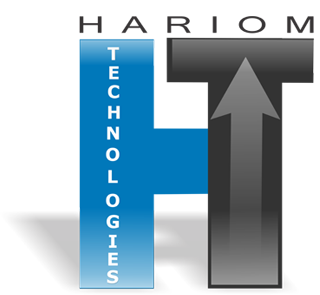Future of PHP - is PHP Dead or Alive

PHP has been around for almost 25-30 years. There have been a lot of updates and innovations in computing due to the introduction of artificial intelligence, recent arguments have been that PHP is becoming too old and extinct, and no one uses it. Is PHP dead? Will it soon be replaced by newer, more modern languages?
We will try to answer all these queries with real statistics..
We will try to answer all these queries with real statistics..

According to the latest metrics from W3Techs, in 2024, PHP still powers 76.5% of websites where the server-side programming language is used. So, this means php still fuels 76% of the whole internet. PHP remains a relevant and widely used language in the modern age. Although other programming languages are becoming popular, it would be entirely wrong to conclude that PHP is dead.
We noticed that PHP dominance, although still true, decreases when it comes to more popular websites. So, let's discuss first what are the advantages of php and then we will discuss is PHP really alive?.
Here are some reasons why you might choose PHP over other programming languages:
* One of the primary reasons why developers choose PHP is its relatively low learning curve. PHP is a straightforward language, with a syntax that is easy to understand and learn.
* PHP has a large and active community of developers who contribute to its development and maintenance.
* PHP is known for its versatility and flexibility. It can run on a variety of platforms, including Windows, Linux, macOS, and many others. Additionally, PHP is compatible with most web servers, including Apache, Nginx, and IIS.
* PHP is an open-source language, which means that it is free to use and distribute. Developers can contribute to its development and help to improve the language for everyone.
* PHP is scalable, which means that it can handle huge amounts of traffic and data. It can be easily integrated with other technologies and platforms, making it an easy and best choice for developing complicated web applications.
* PHP has strong security features. It also has a variety of security-related extensions and libraries that can be used to further enhance the security of PHP applications.
* PHP has built-in debugging tools that make it easier to identify and fix errors in the code.
* PHP is compatible with all popular databases, including MySQL, ODBC, SQLite, and others.
* One of the primary reasons why developers choose PHP is its relatively low learning curve. PHP is a straightforward language, with a syntax that is easy to understand and learn.
* PHP has a large and active community of developers who contribute to its development and maintenance.
* PHP is known for its versatility and flexibility. It can run on a variety of platforms, including Windows, Linux, macOS, and many others. Additionally, PHP is compatible with most web servers, including Apache, Nginx, and IIS.
* PHP is an open-source language, which means that it is free to use and distribute. Developers can contribute to its development and help to improve the language for everyone.
* PHP is scalable, which means that it can handle huge amounts of traffic and data. It can be easily integrated with other technologies and platforms, making it an easy and best choice for developing complicated web applications.
* PHP has strong security features. It also has a variety of security-related extensions and libraries that can be used to further enhance the security of PHP applications.
* PHP has built-in debugging tools that make it easier to identify and fix errors in the code.
* PHP is compatible with all popular databases, including MySQL, ODBC, SQLite, and others.
PHP has always been criticised for its security vulnerability. So, what is our take on this point? Security vulnerability is majorly caused when developers write insecure codes or use outdated language versions. However, these concerns have been mitigated in the newer versions of php by improving features in the language and enhancing better security practices such as input validation, secure password hashing, and parameterized queries.
Google Trends shows that during the last few years, JavaScript development has indeed increased its popularity. But at the same time, trends do not show any major drop in PHP development significance.
So, what is the conclusion: PHP has a vast future due to its versatility, efficiency, open source and community support. As we move towards the future PHP will continue to evolve with the changing landscape of web development and incorporate modern technologies and practices. The journey of PHP will revolve around its enhancements, modernization, and staying aligned with the latest industry trends. The community of PHP will continue to evolve and always ensure it is the relevant and best choice for web application development.
So, what is the conclusion: PHP has a vast future due to its versatility, efficiency, open source and community support. As we move towards the future PHP will continue to evolve with the changing landscape of web development and incorporate modern technologies and practices. The journey of PHP will revolve around its enhancements, modernization, and staying aligned with the latest industry trends. The community of PHP will continue to evolve and always ensure it is the relevant and best choice for web application development.


